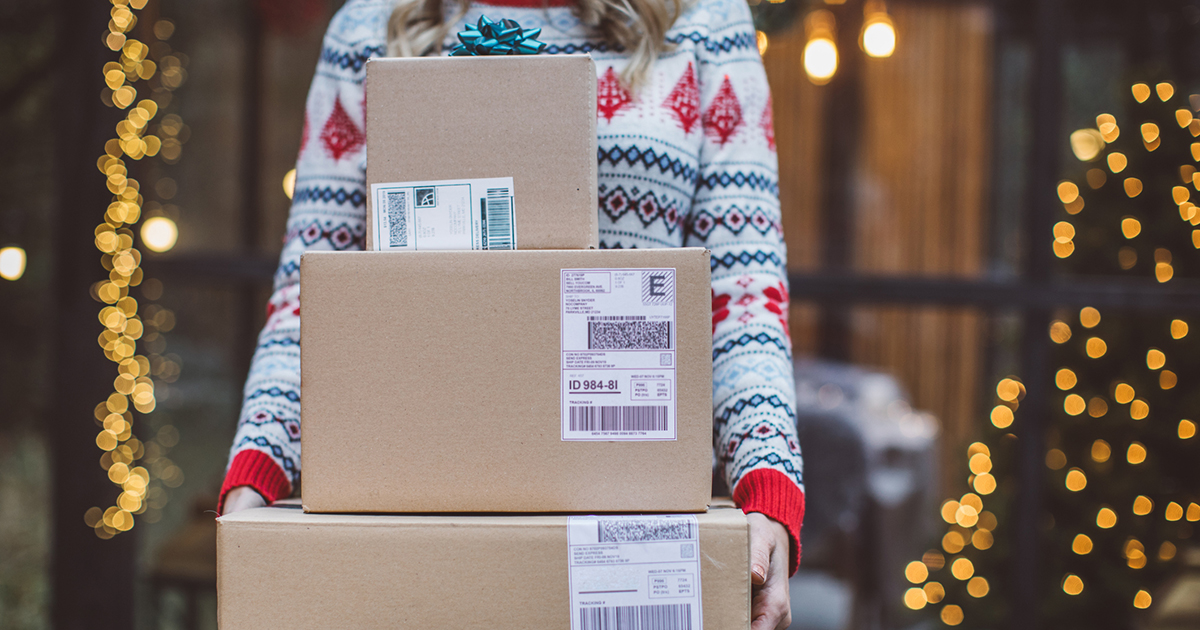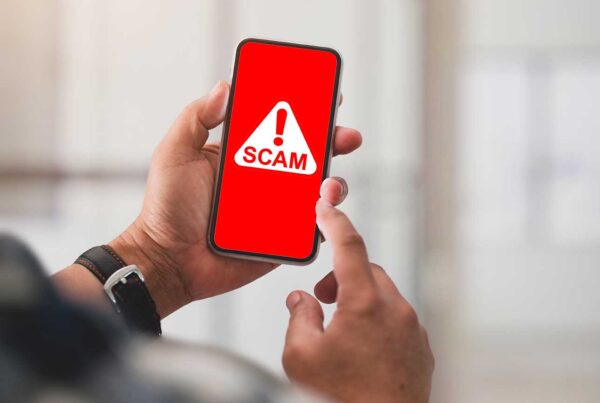‘Tis the season for… unwanted and fraudulent package delivery messages?
When online shopping increases, so too, do the opportunities for fraudsters to take advantage of shoppers looking for a good deal or hoping to beat the shipping delays causing a logistical nightmare for retailers who are facing pandemic-fueled supply chain issues.
With more than 57% of American shoppers planning to buy holiday items online this year, fraudsters are attacking consumers with fake phone calls, emails and text messages to try to gather their personal or financial information, or even put malicious ransomware on their devices.
Check out these common fake messages related to online holiday shopping scams and the ways you can protect yourself.
The scams
- Spoofed delivery update or tracking details: These messages typically come via email or text message and often include a false tracking number with link. The link either takes the user to a phishing website or might even download malware onto the device being used to access the message. The messages often use the names or logos of large shipping companies which can make them look legit. Message recipients are asked to verify private information or payment details to either confirm their delivery or reschedule it.
- Unable to deliver messages: In this phishing scam, fraudsters contact people by phone, email or text message and claim to be a mail carrier, delivery service or retailer or ecommerce brand. They say they were unable to deliver a package as expected and ask for your details (such as your name, address and to re-verify your credit card number) so they can “re-schedule the delivery.”
- View your package delivery confirmation: Another holiday shopping package delivery scam involves messages that confirm your package has been delivered. It may look like an image or link that needs to be clicked on, but once opened, malware is installed on your device.
- Voicemails asking you to call back to confirm your details: Some scammers are also asking you to call them back to receive your delivery, but it can actually result in a high connection fee, expensive per-minute rates or a request for additional funds to cover a customs fee or tax. These numbers can start with an 809 area code or other 10-digit international numbers.
What to do
If you get a phone call, text message or email about an unexpected package delivery (or a delay in delivery), wait to respond and don’t click on the tracking details. Instead, log into the place you purchased something from to verify tracking details there. Another way you can check tracking info is to check the URL or link for misspellings (such as fedx.com instead of fedex.com).
Take steps to keep your computer secure by updating your firewall, anti-virus and anti-spyware software regularly. Additionally, when you are paying for something online, look for a URL starting with ‘https’ and a closed padlock symbol, which verifies the site is secure.
If you’ve spotted a scam, spread the word! Tell your family and friends and report it to the Federal Trade Commission (FTC).
How Verve can help
If you think your Verve account is at risk because of a holiday shopping scam, call Verve at 800.448.9228. One of our team members can look at your account with you to verify there are no suspicious transactions, help you cancel your card if you’ve entered your number into a questionable website, as well as guide you on how to safeguard your account against fraud.
It’s Verve’s goal—in line with our guiding cooperative principles—to provide education, training and information to help our members stay financially fit. Verve is committed to keeping our members educated when it comes to their finances by providing details on financial risks and ways to stay safe.
Help your friends and family protect themselves against common holiday shopping scams by sharing this blog post.






 Federally Insured by NCUA |
Federally Insured by NCUA |  Equal Housing Opportunity |
Equal Housing Opportunity |